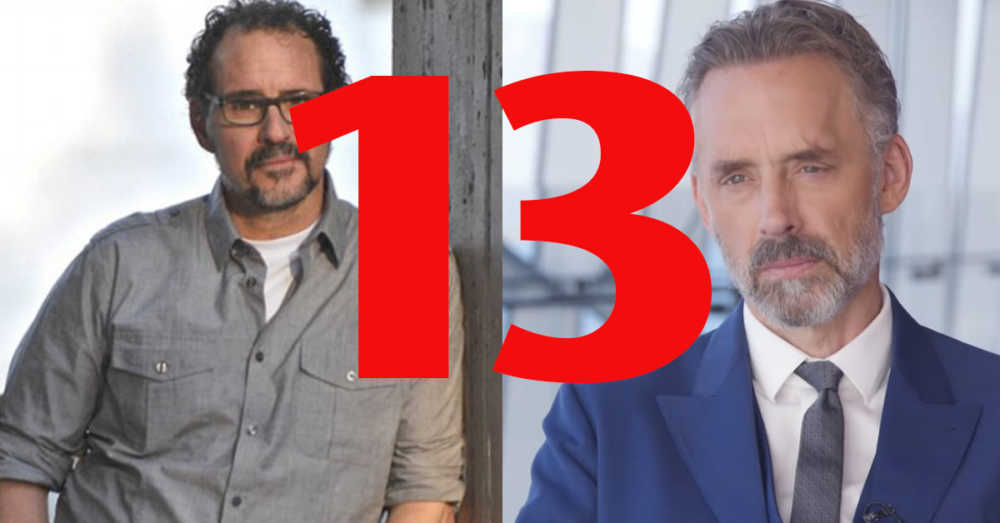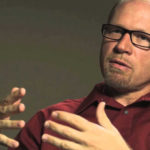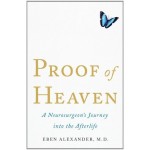We run our website the way we wished the whole internet worked: we provide high quality original content with no ads. We are funded solely by your direct support. Please consider supporting this project.

Part 13 (of 15)— Taking Responsibility (Part A)
Assessing Jordan Peterson’s 12 Rules for Life
by Greg Boyd
“If you’re not the leading man in your own drama,
you’re a bit player in someone else’s.”
Jordan Peterson
If I had to sum up the essence of Peterson’s philosophy in a single sentence, it would be: “Take responsibility for your own life.” In this post I will review Peterson’s thinking on this all-important topic and in the following post I will evaluate it. I should acknowledge at the start that, as paradoxical as it may sound, I find this foundational aspect of Peterson’s thought to simultaneously be one of the most insightful, but also the most anti-Christian, aspects of his thought.
Beware of Resentment
As we have noted several times in this series, Peterson is keenly aware of the suffering that all people endure. “Life is in truth very hard,” he writes. “Everyone is destined for pain and slated for destruction” (149). Not only this, but everybody suffers some form of injustice, some form of oppression, a certain amount of misfortune, and various forms of physical and psychological pain. The all-important question is: How are we going to respond to this world of pain?
One option is to pin the blame for your misery on someone or something else. You’re miserable because your parents didn’t love you, or you were born ugly and underprivileged, or a reckless driver put you in a wheel chair, or simply because God is cruel, to name just a few possible culprits.
Given the current reign of deconstructionism in the western Academy, Peterson is particularly concerned with those who blame society for their misery. In response to the deconstructionists’ claim that “all human corruption” can be “uncritically laid at society’s feet,” Peterson argues that this “conclusion merely displaces the problem back in time. It explains nothing, and solves no problems.” Even worse, this perspective leads to the mistaken conclusion that “all individual problems, no matter how rare, must be solved by cultural restructuring, no matter how radical.” Against this, Peterson argues that “[e]ach person’s private trouble cannot be solved by a social revolution, because revolutions are destabilizing and dangerous” (118).
The very worst aspect of the blame-others option, however, is that it inevitably leads to resentment, and resentment only serves to deepen people’s misery. Indeed, Peterson argues that this option leads straight to hell. Peterson writes:
The idea that hell exists in some metaphysical manner is not only ancient, and pervasive: it’s true. Hell is eternal…It’s the most barren, hopeless and malevolent subdivision of the underworld of chaos, where disappointed and resentful people forever dwell (220).
Look At Yourself
The other possible response to life’s misery, according to Peterson, is to take responsibility for your life to alleviate as much of your misery as possible, and the first step in this process is to inquire how you may have brought it on yourself? To prevent resentment for our misfortunes, Peterson would have us consider the possibility that “life doesn’t have a problem. You do” (81). If you examine yourself, Peterson says you may find that “your misery is the weapon you brandish in your hatred of those who rose upward while you waited and sank.” Or perhaps you’ll discover that “your misery is your attempt to prove the world’s injustice, instead of the evidence of your own sin…your conscious refusal to strive and to live” (81).
Peterson considers “the ancient Jews” to be classic champions of the need to start by assessing one’s own guilt. When ancient Jews endured hardship, Peterson notes, they didn’t “judge reality as insufficient” or “criticize Being itself,” and this allowed them to avoid “sinking into resentment.” Instead, they “blamed themselves when things fell apart.” More specifically, “they acted as if God’s goodness – the goodness of reality – was axiomatic, and took responsibility for their own failure” (157). And, as I noted in post 3, they did this despite the fact that the God of the Old Testament often appears as cruel and as capricious as “a hungry lion” or any other “Force of Nature” (107).
Peterson illustrates the practical value of beginning with an honest inquiry into how we ourselves might be at fault for our misery by talking opening about his own marriage struggles. He admits that over thirty years of marriage, he and his wife have had some deep disagreements. They often “became trapped…in emotional, angry and anxious argument.” They found that the only way out of these traps was to briefly separate into different rooms to ask themselves the same question:
What had we each done to contribute to the situation we were arguing about? However small, however distant…we had each made some error. Then we would reunite, and share the results of our questioning: Here’s how I was wrong…” (356)
Peterson adds that this strategy only works if you “truly want the answer, when asking this question.” And, he adds, the one thing you can be sure of ahead of time is that “you won’t like the answer” (356-57). Yet, if you want to alleviate the misery of the trap you’re in, you have to begin by facing the truth of your own culpability.
A Classic Petersonian Hero
The most powerful illustration of the practical value of searching out your own heart, however, is Aleksandr Solzhenitsyn. After serving on the Russian front lines in the face of a Nazi invasion, Stalin’s paranoid regime had him arrested, beaten, and thrown into “the muddy hell of a Soviet gulag” where he spent years in forced labor under the most deplorable circumstances imaginable (155). On top of this, Solzhenitsyn was at one point struck with cancer, and then, at a later date, he was afflicted with “an extremely serious disease” (154).
Solzhenitsyn “could have become resentful and bitter,” Peterson notes. And he continues:
His life had been rendered miserable by both Stalin and Hitler, two of the worst tyrants in history. He lived in brutal conditions. Vast stretches of his precious time were stolen from him and squandered. He witnessed the pointless and degrading suffering and death of his friends and acquaintances…. Solzhenitsyn had cause to curse God. Job himself barely had it as hard (154).
But Solzhenitsyn instead decided to fend off resentment. “He asked himself the most difficult of questions,” says Peterson, which is: “had he personally contributed to the catastrophe of his life” (155)? He considered his “unquestioning support of the Communist Party,” especially as a young man. He reflected on “[h]ow many times” he had “acted against his own conscience, engaging in actions that he knew to be wrong.” He thought about how “many times” he had “betrayed himself” and “lied.” And then he began to wonder if there was “any way that the sins of his past could be rectified” and “atoned for.” While wasting away in a Soviet labor camp, Solzhenitsyn “took himself apart, piece by piece, let what was unnecessary and harmful die, and resurrected himself” (155).
One monumental by-product of Solzhenitsyn’s self-transformation was his book, The Gulag Archipelago, which is “a history of the Soviet prison camp system.” According to Peterson, this single work “demolished the intellectual credibility of communism.” Hence, he concludes: “One man’s decision to change his life, instead of cursing fate, shook the whole pathological system of communist tyranny to its core” (155).
Solzhenitsyn is a classic Petersonian hero, modeling for all of us what it looks like to fend off justified resentment by first examining one’s own faults and then embarking on a meaningful life that was committed to ending tyranny and alleviating suffering
Fix Yourself First
So, Peterson concludes, if you’re suffering feels unbearable, you should first ask: “Have you cleaned up your life?” And if the answer is “no,” then Peterson says, “here’s something to try: “Start to stop doing what you know to be wrong. Start stopping today” (157). In the midst of your suffering, he says, “[d]on’t blame capitalism, the radical left, or the iniquity of your enemies.” And to deconstructionists, Peterson writes:
Don’t reorganize the state until you have ordered your own experience. Have some humility. If you cannot bring peace to your household, how dare you try to rule a city (158).1
Similarly, Peterson elsewhere writes: “It is my firm belief that the best [367] way to fix the world—a handyman’s dream, if ever there was one – is to fix yourself. Anything else,” he adds, “is presumptuous” and “risks harm, stemming from your ignorance and lack of skill” (366-67). If you focus on getting your own house in order, Peterson says,
Maybe your anxiety, and hopelessness, and resentment, and anger will recede. Perhaps your uncorrupted soul will then see its existence as a genuine good, as something to celebrate, even in the face of your own vulnerability (159).
Aiming High
Taking an honest look at how you may be responsible for your own misery is only the first step in bringing about change in your life, however. The next step is to “determine where you are going in your life, because you cannot get there unless you move in that direction” (282). You must boldly “confront the chaos of Being, [t]ake aim against a sea of troubles,” [s]pecify your destination, and chart your course” (283). To do this, you must “treat yourself as if you were someone you are responsible for helping” and “consider what would be truly good for you.” This “good” is not necessarily about something you “want” or something you think would make you “happy” (62). It’s rather about what “would make your life meaningful” (63).
And our life becomes meaningful, Peterson contends, when our aim goes beyond fixing ourselves and seeking personal fulfillment to include the welfare of others. To find meaning, or, what comes to the same thing, to justify our miserable existence, Peterson says we must adopt this axiom: “to the best of my ability I will act in a manner that leads to the alleviation of unnecessary pain and suffering” (198). This is to aim “at the betterment of Being” (189) and “to work to bring about the Kingdom of God on earth,” which is both “a state, and a state of mind, at the same time” (198). We should, in a word, do what Geppeto does in Pinocchio when he “wishes upon a star,” which is to say, we should “[a]im for Paradise” (359).
Taking Baby Steps
Still, you can’t run a marathon except by taking one step at a time. So too, while Peterson encourages us to aim high, he is also a realist who encourages us to start small. Peterson says we should start by asking three questions:
“What is it that is bothering me?” “Is that something I could fix?” and “Would I actually be willing to fix it?” If you find that the answer is “no” to any or all of the questions, then look elsewhere. Aim lower. Search until you find something…that you could fix, that you would fix, and then fix it” (108, italics added).
The more we notice and act on what we could and would fix, the more our capacity to notice and act on what we could and would fix grows. And the greater this capacity grows, Peterson claims, the more of the goodness of Being we will experience, for “the world is revealed…through the template of your values.” Hence, Peterson writes, “[i]f the world you are seeing is not the world you want…it’s time to examine your values” (170). And when we change our aim, and therefore our values, “our minds will start presenting us with new information, derived from the previously hidden world, to aid us in that pursuit” (101).
For this reason, Peterson contends that the world reveals “whatever goodness it contains in precise proportion to your desire for the best” (101). But the converse is also true. If a person is filled with envy and resentment, “the world you inhabit reveals itself as a place of bitterness, disappointment and spite” (106). So, if you want to see a good world rather than a thoroughly miserable world, fight resentment, at all costs, and instead aim for paradise.
I find Peterson’s thoughts on taking responsibility for our own lives and fixing ourselves before we try to fix the world to be very insightful and filled with practical wisdom. Nevertheless, as the following post will make clear, I also have several areas of concern, not least of which is that the very center of Peterson’s outlook is fundamentally contrary to the center of the Christian faith.
___ ___ ___
1 For an insightful talk on the need to start with yourself and to stay within “your range of competence” when addressing social issues, see video.
Category: General
Tags: Book Reviews, Books, Jordan Peterson
Related Reading

Part 18 (of 20) — Jordan Peterson on Jesus
Assessing Jordan Peterson’s 12 Rules of Life “What does [Jesus’ teaching to love your enemies] mean? Learn, from the success of your enemies; listen…to their critique, so that you can glean from their opposition whatever fragments of wisdom you might incorporate, to your betterment.” Jordan Peterson In the previous post we saw that Peterson has…

Greg’s Review of Changing Your Mind by Victor Copan
Several months ago Victor Copan introduced himself to me at the end of a Woodland Hills Church service. He told me about his recently published book, Changing Your Mind. “I know you’re into spiritual disciplines and neuroscience,” he said, “so I suspect you might enjoy my book. It’s about the interface of these two topics.”…

God of the Possible Endorsements and Reviews
Endorsements: “God of the Possible is a good, simple introduction to the issues and the battle over ‘open theism.’ Boyd consciously wrote this as a pastor for lay people. It is also clear that he developed his ideas as a result of being a pastor struggling with the issues in the life of his congregation.…

Part 19 (of 20) — Peterson’s Most Controversial Interview
Assessing Jordan Peterson’s 12 Rules of Life For the final two posts of my Peterson series, I’d like to evaluate Peterson’s most controversial interview and then close this series with a discussion on the possible reasons why Peterson has gained such a remarkably large audience over the last two years. I think that everyone who…

Why Can’t God Stop Evil? The Thomas J. Oord Interview (podcast)
Greg and Thomas talk about Open Theism and how Greg’s views differ from Thomas’s. Theology nerds, get your compass and your flashlight and prepare to go DEEEEEP in the weeds! Thomas’s book: God Can’t Episode 487 http://traffic.libsyn.com/askgregboyd/Episode_0487.mp3

Review of Proof of Heaven (Eben Alexander)
Proof of Heaven is a recently released book by Eben Alexander that is receiving a lot of acclaim. In this review I’d like to first provide a general overview of Proof of Heaven and then analyze it from a theological perspective. ——- An Overview ——- A friend told me about Proof of Heaven several weeks…
